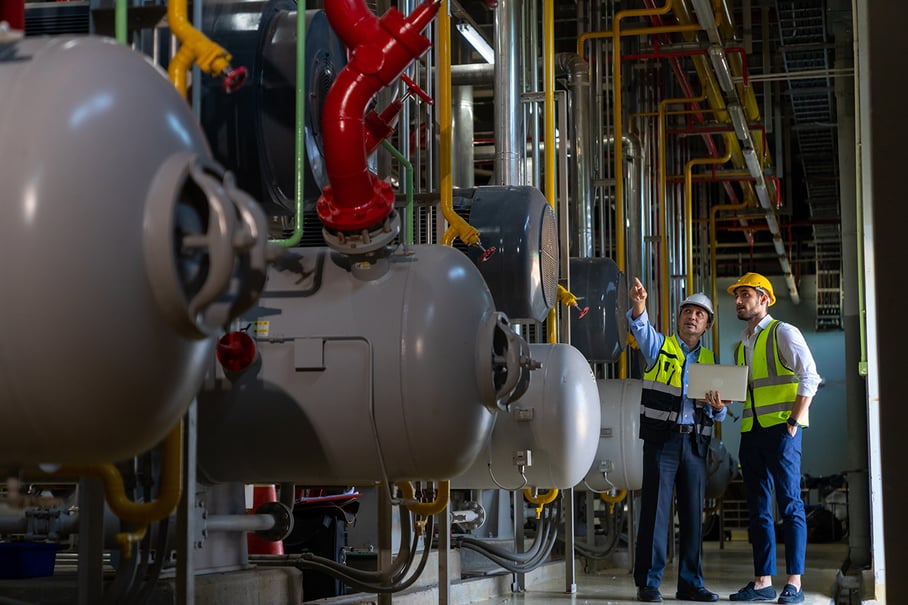 A company’s maintenance is typically handled in a separate system developed for maintenance needs or in the maintenance module of the company’s ERP system (Enterprise Resource Planning). An ERP system and a separate maintenance management system are both good options, but they differ in terms of functionality and development possibilities.
A company’s maintenance is typically handled in a separate system developed for maintenance needs or in the maintenance module of the company’s ERP system (Enterprise Resource Planning). An ERP system and a separate maintenance management system are both good options, but they differ in terms of functionality and development possibilities.
For the daily operations, management, and development of maintenance, it is essential that the chosen system supports the work of the maintenance organisation and evolves according to needs and changing circumstances. The system sets certain standardised guidelines for operation, but it must also be capable of guiding activities and ensuring that the system provides the desired data to support the achievement of set objectives.
How does an ERP solution and a separate maintenance system differ?
ERP systems are developed for the company’s comprehensive ERP management and are often used extensively at different organisational levels to manage various functions. The core idea is to centralise the information in a single database so that the accumulated information can be used as widely as possible. The advantage of an ERP solution is a holistic financial management perspective: when all the data is in the same system, financial monitoring and reporting is easy.
However, from a maintenance standpoint, this can be challenging. The development work of the ERP system is often focused on other matters, which can lead to the module for day-to-day maintenance and development being left on the back burner. A separate maintenance system is optimised to support the operations of the maintenance organisation at its various levels. At its best, the system is built as a visual tool for management, where a snapshot of the maintenance status is always visible. The system itself is also easy to use and modify. You can personalise views, edit forms and terminology, and define functional or personal usage patterns.
Vertical systems are here to stay
Increasingly, businesses are recognizing significant business advantages in vertical systems that effectively support their operations. This means that a company may have an ERP system integrated with specialized software to support individual functions or business segments.
Often, a tailored system ecosystem that efficiently supports their industry is favored. In this mindset, vertical systems bring genuine added value through their specialization, and the initial costs remain reasonable thanks to open interfaces and convenient integrations.
The integration of maintenance systems and ERP always begins with defining the roles of the systems. This is when the relationship between the systems and what information is maintained in each system is determined.
Why and when is system integration worthwhile?
Thanks to integration technologies, a separate maintenance system or a part of it can be implemented alongside the ERP system. Integration ensures that, for example, the ERP system provides the necessary financial information as a basis for reporting in relation to inventory, payroll or other costs. This ensures the use of the best features of both systems and the use of the system best suited to each activity.
Typical ERP and maintenance system integrations:
| Payroll | Salary hours, salary categories, persons, accounts/cost center |
|
Billing / Invoicing |
Work hours, materials, purchasing, other expences (maintenance service business) |
| Purchases | Items, order points / alarm limits, purchase orders, arrivals |
| Warehouse | Inventory transactions, accounts/cost center |
| Production planning | Preventive maintenance schedules, downtime |
| Personel | Credentials, user rights, work shifts |
Some five years ago, discussions regarding integrations occurred in connection with approximately ten percent of maintenance management system deliveries. Today, the ratio has inverted, and few projects are progressing without an emerging need for integration.
In our experience, the change is due to the fact that the importance of maintenance has increased in the manufacturing industry. Successful companies are aware that maintenance plays an important role in achieving business goals, and maintenance is seen as a productivity factor and is an integral part of the reporting system.
Read more:
Blog: How is maintenance data refined into additional value for business operations and decision-making?
Blog: From an expense to a productivity driver – how to ensure the future success of maintenance?
Novi by Pinja - maintenance system

Juha Nyholm
I work as a Sales Manager at Pinja, working on maintenance solutions. I have a long history of working with industry. I spend my free time in my own and my children’s sports activities, including basketball.
Back to the Pinja Blog
Categories
- Career at Pinja (68)
- Manufacturing (48)
- Knowledge Management (45)
- Production Development (44)
- Software Partnership & Tools (42)
- Sustainability (37)
- Wood and Forestry (37)
- Bioenergy and Recycling (27)
- IT Support and Outsourcing (24)
- Ecommerce (23)
- Maintenance (22)
- Artificial Intelligence and Machine Learning (15)
- Public Services (9)
- Compliance (1)